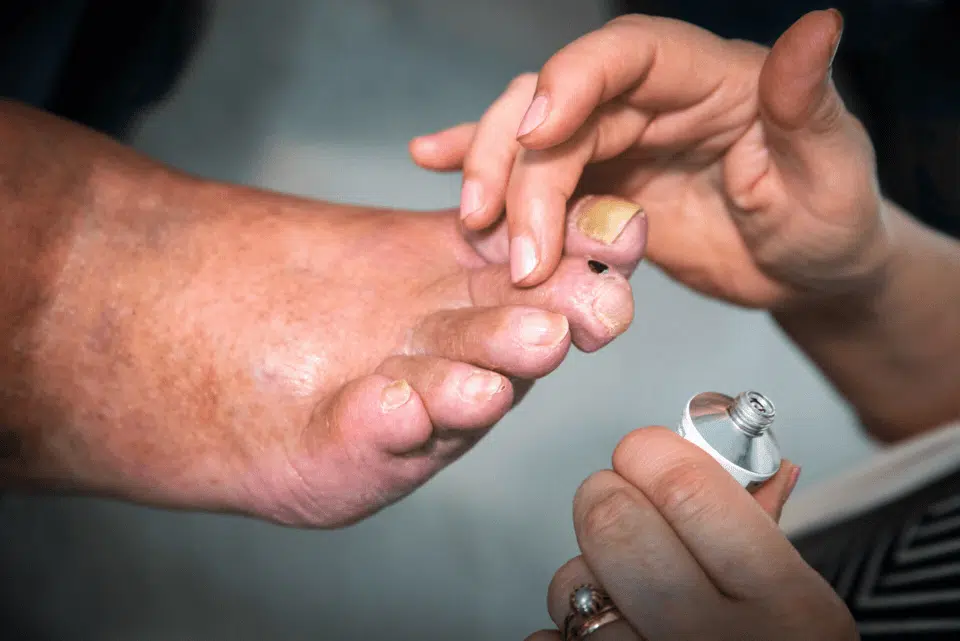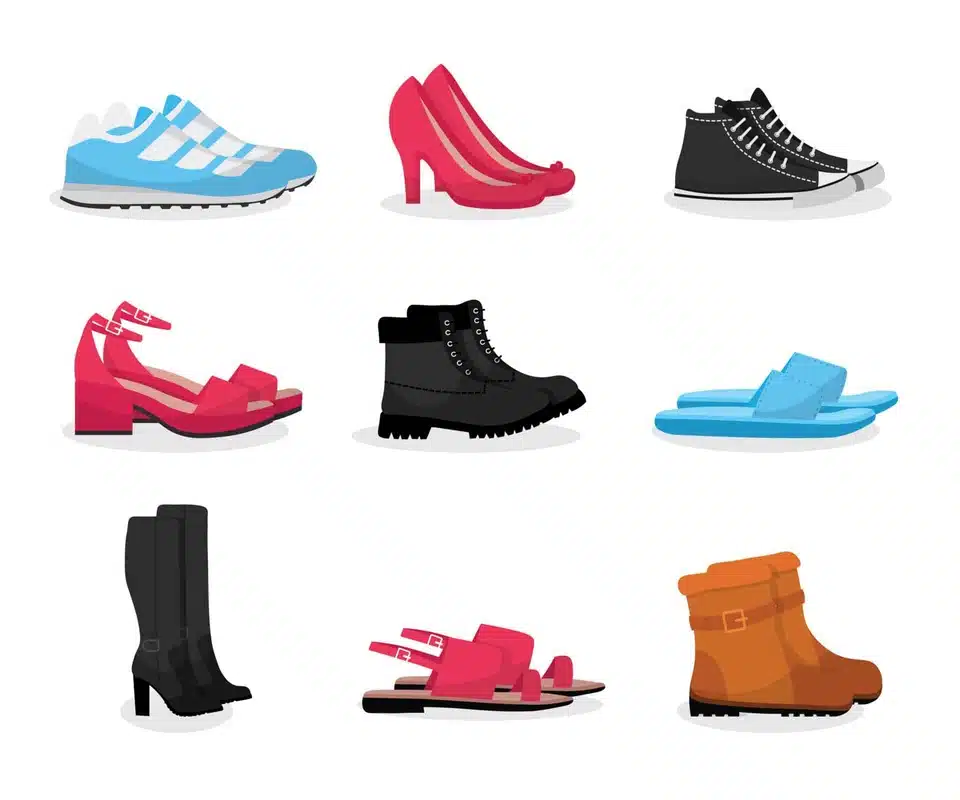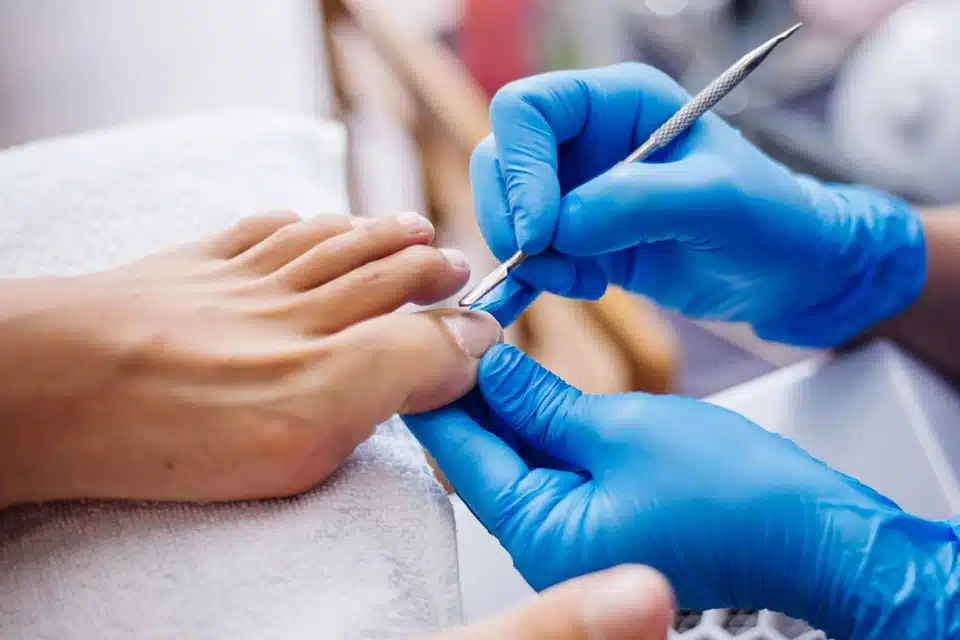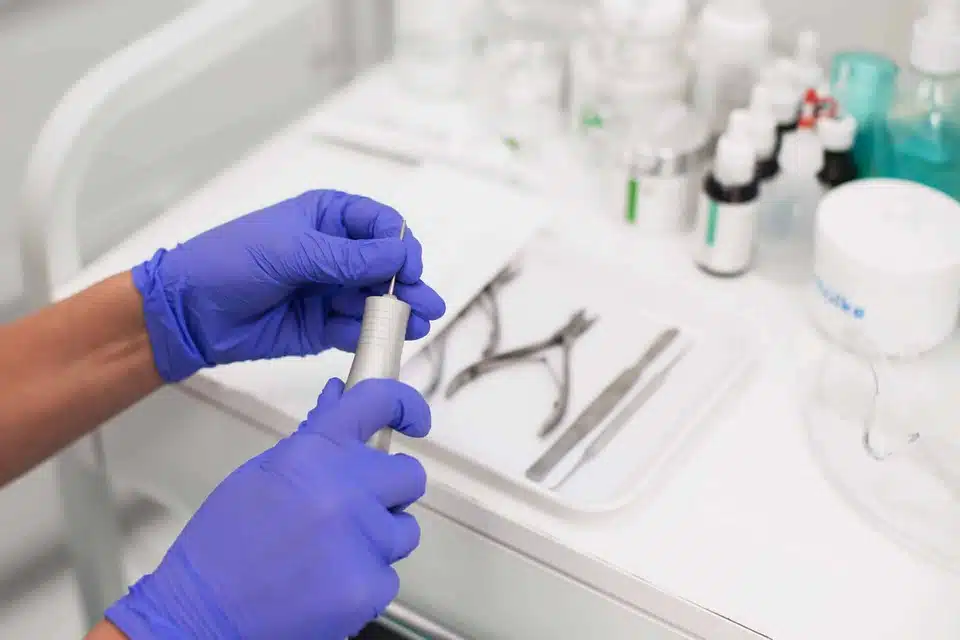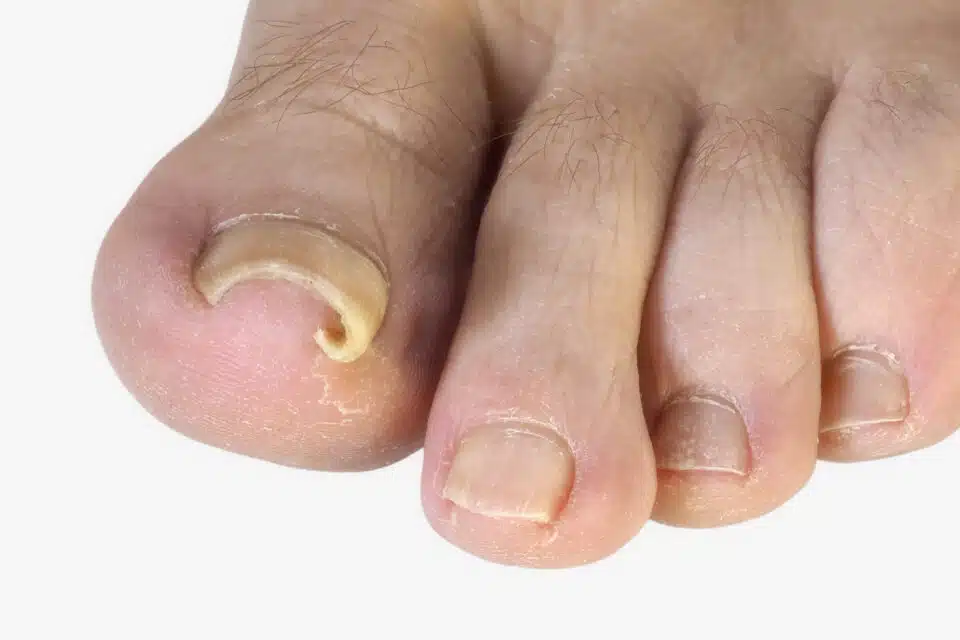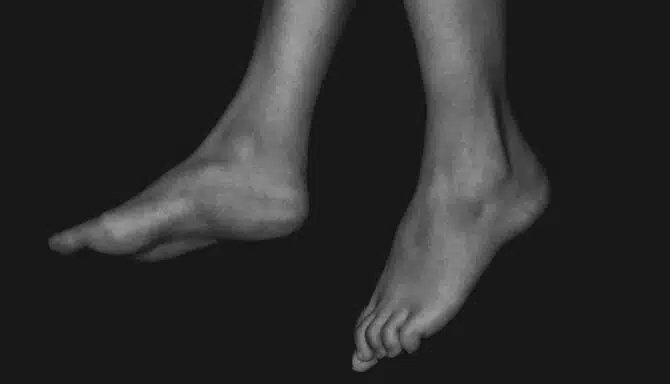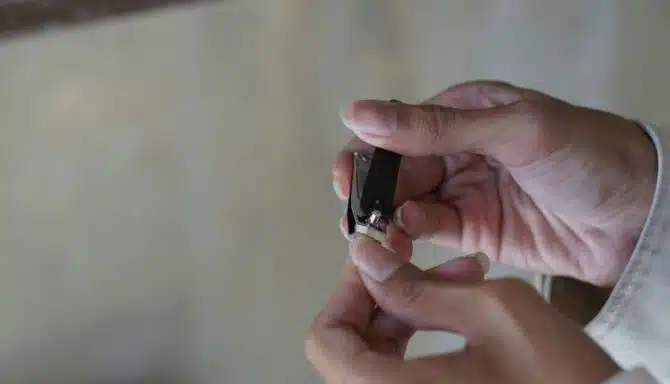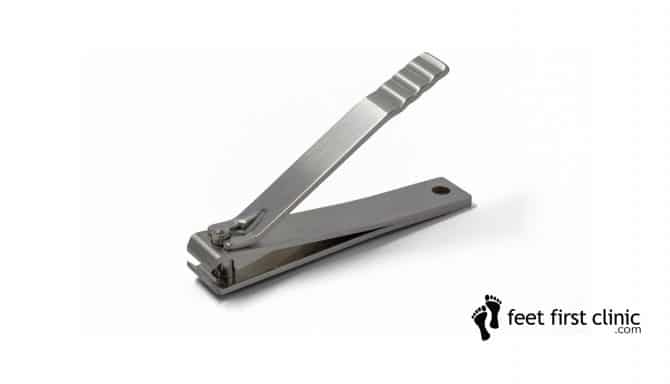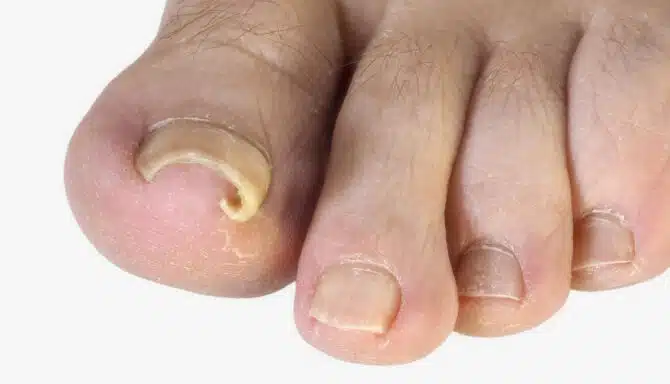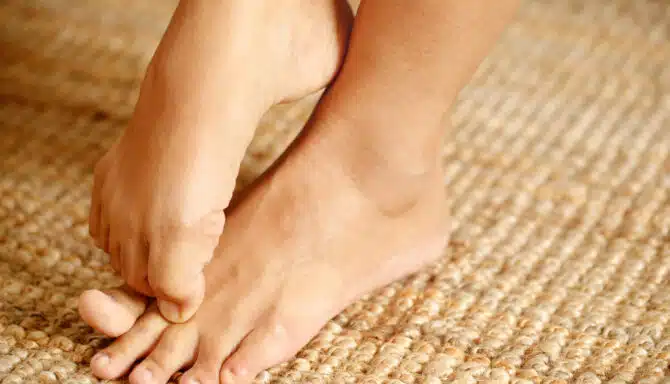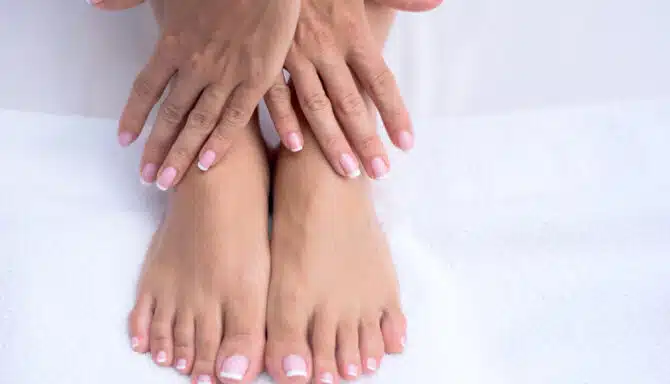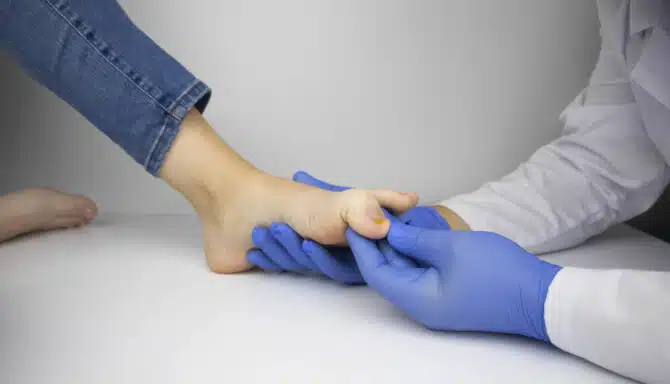March 20, 2025
Ram’s horn toenails? Sounds like a serious foot issue! And it is—this condition, medically known as onychogryphosis, causes thickened, curved nails that can become painful and difficult to manage over time. It doesn’t just affect nail appearance; it can lead to discomfort, infection, and mobility issues if left untreated. Fortunately, onychogryphosis treatment options from a chiropodist or podiatrist are available to help you manage comfort and nail health.
What Are Ram’s Horn Toenails?
View this post on Instagram A post shared by Feet First Clinic (@feetfirstclinic_)
Ram’s horn toenails (onychogryphosis), one of the many types of toenail conditions, is classified as a nail disorder or nail disease where the toenail becomes extremely thick, abnormally curved, and overgrown, often resembling the spiraled shape of a ram’s horn. This happens because the nail plate—made of keratin—grows unevenly due to disruptions in the nail matrix, the part of the nail bed responsible for new cell production. Instead of growing outward smoothly, the nail thickens, hardens, and may curl or twist due to uneven pressure and irregular cell turnover. They have a similar appearance to a severe fungal toenail infection.
The texture of a ram’s horn toenail is usually rough, ridged, and extremely hard, making it difficult to trim with standard nail clippers. Over time, the nail can develop a yellowish, brownish, or even grayish hue due to keratin buildup and potential fungal infections. In severe cases, the nail may grow so long and misshapen that it presses into the surrounding skin, causing pain, tenderness, and difficulty wearing shoes or walking comfortably. Because the thickened nail loses its normal flexibility, it can crack or split, increasing the risk of infection.
The appearance of onychogryphosis can also affect confidence and make it difficult to find shoes that accommodate their size and abnormal shape.
Although onychogryphosis most commonly affects the big toe, it can develop on others as well. It tends to progress gradually, meaning that early signs—such as mild thickening or slight discoloration—can go unnoticed until the nail has significantly changed in shape and texture.
Causes of Ram’s Horn Toenails
https://www.youtube.com/shorts/3JAUqiqJfus
These toenails do not generally form spontaneously without an underlying cause or risk factor. Let’s take a look at what generally causes this nail disorder.
Risk Factors for Ram’s Horn Toenails:
Trauma and Ill-Fitting Footwear
Repeated or acute trauma to the toenail can disrupt normal nail growth, leading to thickening and deformation. Continuous pressure and friction, such as from ill-fitting footwear, can cause microtrauma to the nail bed, contributing to the development of onychogryphosis. Essentially, the toenail thickens and starts growing in a different direction to protect itself.
Age
In general, our feet become more vulnerable with age due to several physiological changes that can occur, which can predispose us to onychogryphosis. For instance, reduced peripheral circulation, common in older adults, impairs blood flow to the extremities, leading to diminished oxygen and nutrient delivery to the nails. This alters the nail's natural growth process, causing nails to grow slower and nail cells to pile up on top of each other (rather than growing out). As a result, they thicken and can change shape. Additionally, decreased mobility in the elderly may lead to inadequate foot care, contributing to nail abnormalities.
https://www.youtube.com/shorts/gEi59gq5g54
Diabetes
Diabetes significantly increases the risk of developing onychogryphosis, particularly due to the effects of diabetic neuropathy. Diabetic peripheral neuropathy reduces sensation in the feet, so individuals may not notice pressure, injuries, or trauma to the toenails, which can lead to deformities like onychogryphosis. Without the ability to feel discomfort, they may unintentionally cause damage to the nail, leading to thickening, curling, and other changes associated with the condition. Additionally, poor circulation caused by diabetes can impede healthy nail growth, making the nails more prone to abnormalities.
Peripheral Vascular Disease (PVD)
As already discussed, poor circulation affects the nail growth process and can lead to nail deformities. In particular, peripheral vascular disease involves the narrowing of peripheral arteries, reducing blood flow to the limbs. The diminished circulation can cause various symptoms, including slow or unusual nail growth. Without proper blood flow, the nails may become thickened and misshapen, potentially progressing to onychogryphosis if left untreated.
Cognitive Impairment
Relating back to age as a risk factor, conditions such as dementia can lead to neglected foot care due to cognitive decline. Individuals with dementia may forget or be unable to perform regular foot hygiene practices, increasing the risk of nail deformities like onychogryphosis. Self neglect, or infrequent cutting of toenails for a significant amount for any reason, is also a risk factor.
High-Friction Sports and Activity
Participating in high-friction sports like running, soccer, or ballet can increase the risk of developing onychogryphosis. Repetitive pressure and friction from constant movement or improper footwear during these activities can cause trauma to the toenail, leading to thickening, curling, and potential deformity. Runners, for example, often experience repeated impact on their toenails, particularly the big toe, which can cause them to become damaged or misshapen over time. Additionally, athletes who wear shoes that are too tight or too loose, which cause friction and rubbing, are more likely to develop toenail issues. As is the case with ill-fitting footwear, over time, the nail thickens and changes growth direction in order to protect itself from the repetitive trauma.
Hyperuricemia
High levels of uric acid in the blood is often associated with gout, but it can also contribute to the development of onychogryphosis. Elevated uric acid can lead to the deposition of urate crystals in joints and tissues, including the nails, which can cause inflammation and damage. This buildup may result in nail thickening, distortion, and a rough appearance. While gout primarily affects joints, the condition’s systemic nature can also have an impact on nail health
Fungal Infections
Also known as onychomycosis, fungal infections cause thickening and nail distortion. These infections often thrive in warm, moist environments and can infiltrate the nail, leading to changes in color, texture, and shape. In diabetic patients, onychomycosis prevalence is notably higher, reaching up to 31.5%, due to factors like elevated blood glucose levels and compromised immune response.
Psoriasis / Psoriatic Arthritis
Psoriasis or psoriatic arthritis can cause nail changes in roughly half of affected individuals. Proper management of psoriasis through medical treatments can help alleviate these nail changes and improve overall nail health.
Treating Ram’s Horn Toenails: Nail Care for Curved Toenails
https://www.youtube.com/shorts/QFWBwM6mGqM
Routine Professional Nail Care
It’s very important to visit a Podiatrist or Chiropodist, both types of foot specialists in Ontario, if you have Ram’s horn toenails. This is because it is far too difficult, even dangerous, to manage them yourself. Their thickness, abnormal shape and unsightly appearance and positioning on your foot make it impractical to try cutting them with standard nail clippers, and is not advised.
A chiropodist or podiatrist can tend to your nails properly with specialized tools designed to maintain nail disorders. They can also perform toenail debridement, smooth out nail edges, clean out debris, and apply sprays that help with discoloration.
Other nail care treatment options may vary depending on the severity of the condition. In more extreme cases, surgical interventions such as nail avulsion—removal of the nail plate—may be considered.
If an infection is present, a chiropodist or podiatrist can prescribe the appropriate antifungal or antibacterial treatments to address the underlying cause (you can't treat fungal infections from home).
In addition to the specialized care provided by podiatrists and chiropodists, treatment for Ram’s horn toenails can also include regular monitoring to track any changes in the condition. They may suggest specific at-home care practices, such as gentle cleaning and moisturizing, to support the overall health of the nails and surrounding skin. For individuals with chronic conditions, like diabetes, it is especially important to maintain close contact with a foot care specialist to ensure the toenails remain manageable and complications are avoided. Diabetes patients who neglect their foot health can experience severe ulcer formation.
Onyfix
Onyfix is just one of the many unique ways a foot specialist can help treat curved, curled or Ram's Horn Toenails. It's a non-surgical treatment that involves the placement of a band across the toenail. This band then corrects the nail's growth pattern and shape. It's great for Ram's Horn Toenails because it will help flatten out the toenail on the nail bed and "train" the toenail to grow in the correct direction.
Proper Fitting Footwear
But all the treatment in the world won't matter without eliminating one of the most common causes of curved, curled and abnormal toenails: ill-fitting footwear. As we already discussed, ill-fitting footwear causes repetitive trauma on the nailbed, which disrupts the toenail's growth process. Prioritizing footwear that minimizes pressure and allows for adequate toe room to alleviate discomfort and prevent further nail distortion is key. Opting for shoes with a wide toe box provides ample space for the toes to spread naturally, reducing friction and pressure on the affected nails. Shoes may also require extra depth, and orthopedic footwear may be required for sufficient comfort.
Featured Photo By PixaBay
